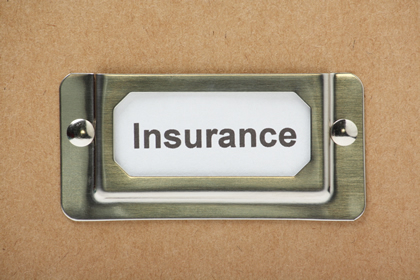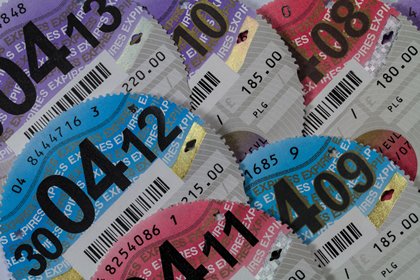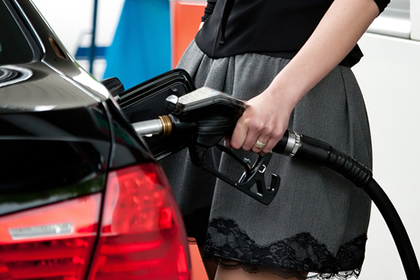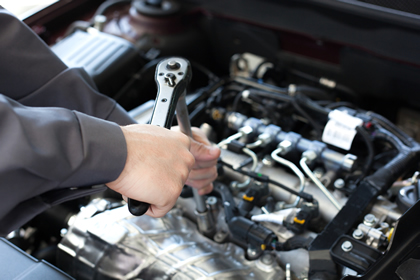
Cutting the costs of driving for young drivers
Passing your driving test is brilliant, suddenly having a new skill that gives you freedom and responsibility all at once. Some tests you take and wonder, "When will I ever need to use that information again?" not with driving though.
You never forget that glorious moment when you park up in the test centre and the examiner glances up from their clipboard long enough to mutter, "Congratulations." After that, they could be telling you all you need to do is not drive for 24 hours and you'll get a million pounds, but you wouldn't hear them, all you're thinking is, "Yes, I can drive my friends to Maccy Ds for lunch now."
However, there is one thing which makes the world of driving a little less appealing and that, of course, is the cost. From the initial outlay for the car itself, to the dreaded task of insuring it, to MOTs, services, tax and the never-ending expense of fuel, driving is a costly business.
So how do you keep the costs down without sacrificing your car altogether? Are there any cars that can help keep your outgoings to a minimum? And will your friends ever chip in for petrol money?
We've done some digging and answered those questions for you, we still can't be sure about the whole chipping in for petrol thing, but we've got the rest covered.
Adding up the cost
Lovely as it would be to just have a price for a car, plus a price for insurance and boom - that's the only price you need to worry about. Sadly that just isn't the case.
If you haven't bought your car yet then the best thing to do is get researching, try and find out all you can about running costs and reliability as well as insurance prices.
Here are some things to consider before buying your new ride and some cars which may work out more cost effective for you:
1. Eek... Insurance

Looking for insurance can be tough but as law requires it, you have no choice in the matter. Avoiding it could result in a fixed penalty of £100, having your vehicle wheel-clamped, impounded or destroyed or you could face a court prosecution with a possible maximum fine of £1,000. Add to that the potential for penalty points being added to your licence, it really isn't worth taking the risk.
- As far as getting the best price for insurance goes, the first thing to do is get lots of quotes, whether it's through comparison sites or going directly to the insurer, make sure your information is correct and be prepared to spend some time looking
- Get a multi car quote - if there's more than one car at your home address then you could be eligible for a multi car discount. Even if the car belongs to someone else, you can still get a multi car quote.
Our friends at Admiral offer a MultiCar policy which entitles every car on the policy to get its own MultiCar discount while each driver earns their own No Claims Bonus.
A multi car policy could save you and your family money, ring the company directly and they will explain what you'll need to do in more detail.
Get a MultiCar quote now
- Try a telematics or black box policy. They usually involve a little box being fitted into the vehicle, either permanently out of sight or temporarily using the 12 volt socket on the dashboard.
Lots of people, especially new drivers worry about the boxes watching their every move, however, they allow insurers to judge an individual's driving rather than grouping them together. Some policies offer an upfront discount and then require the box to be fitted for a year and price the renewal accordingly. Others only require the unit to be fitted temporarily and then offer cash back.
Admiral also offers a telematics policy called Admiral Little Box, click below to get a quote or call one of their friendly call centre staff.
Get an Admiral Little Box quote now
2. Vehicle Excise Duty AKA car tax

The cost of tax depends on the age of the car and its CO2 emissions output. Vehicle Excise Duty can vary massively from nothing at all for some electric cars to more than £1,000 for the most polluting.
Never assume just because a car is small it'll have cheaper car tax, for example a six year old 1.3i Ka would cost you £180 for a year's tax, compared to £20 for an Audi A3 2.0 TDI.
Don�t forget, you no longer need to display a paper tax disc in your car. They were scrapped in October 2014 in favour of digital records.
3. Fuel efficiency

Whether you opt for petrol or diesel, fuel prices are higher than ever, which means knowing how many miles to the gallon your new car is going to do is essential knowledge.
Deputy Head of engineering at Diamond, Glyn Morgan, said: "The smaller engines will often have greater fuel efficiency, these will also attract lesser road tax in comparison to larger cc cars, while petrol is cheaper to buy, diesel has greater fuel economy. Check social media for various blogs, this will indicate if there are any issues with certain types of vehicles."
4. MOT

MOTs are carried out yearly on all cars over three years old to determine the roadworthiness of a vehicle. It is required by law and you can be fined up to a £1,000 if you're caught driving a car without a valid certificate. It can also invalidate your insurance.
MOTs cost around £50 but if the garage finds faults, you would also need to pay repair and labour costs.
Many local councils have their own MOT test centres for council vehicles, like buses or ambulances. By law these test centres must be open to the general public so as long as your car isn't a taxi then you can take it along.
The council-run centres generally only carry out tests and not repairs so there is no incentive for them to find faults that aren't there.
5. Servicing

Unlike an MOT, a service is not required by law. It offers a thorough inspection for any faults and is often required by the car manufacturer to keep the warranty valid. A full service could cost up to £200 so yet another expense to keep in mind when buying a car.
6. Which car should you get?

It would be brilliant if there was a great value, fully efficient, cheap to insure all round low-priced car for younger drivers, but sadly this isn't the case.
One of Diamond's pricing experts explains why: "I think generally the lower the vehicle group the better, and obviously newer, cars tend to be more expensive to insure. The problem is the vehicle itself is one of so many other factors we rate on - and so we could have a 17 year old with the 'ideal car' in terms of rating, but with a high risk postcode or other high risk details meaning their price could still be very high."
Here are Glyn's five quick-fire tips to help keep those motoring costs down:
- Ensure tyre pressures are correct
- Don't slam the brakes on
- Avoid heavy accelerating
- Check general servicing, fluid levels for washers etc
- Never overload your car as this will increase fuel consumption

